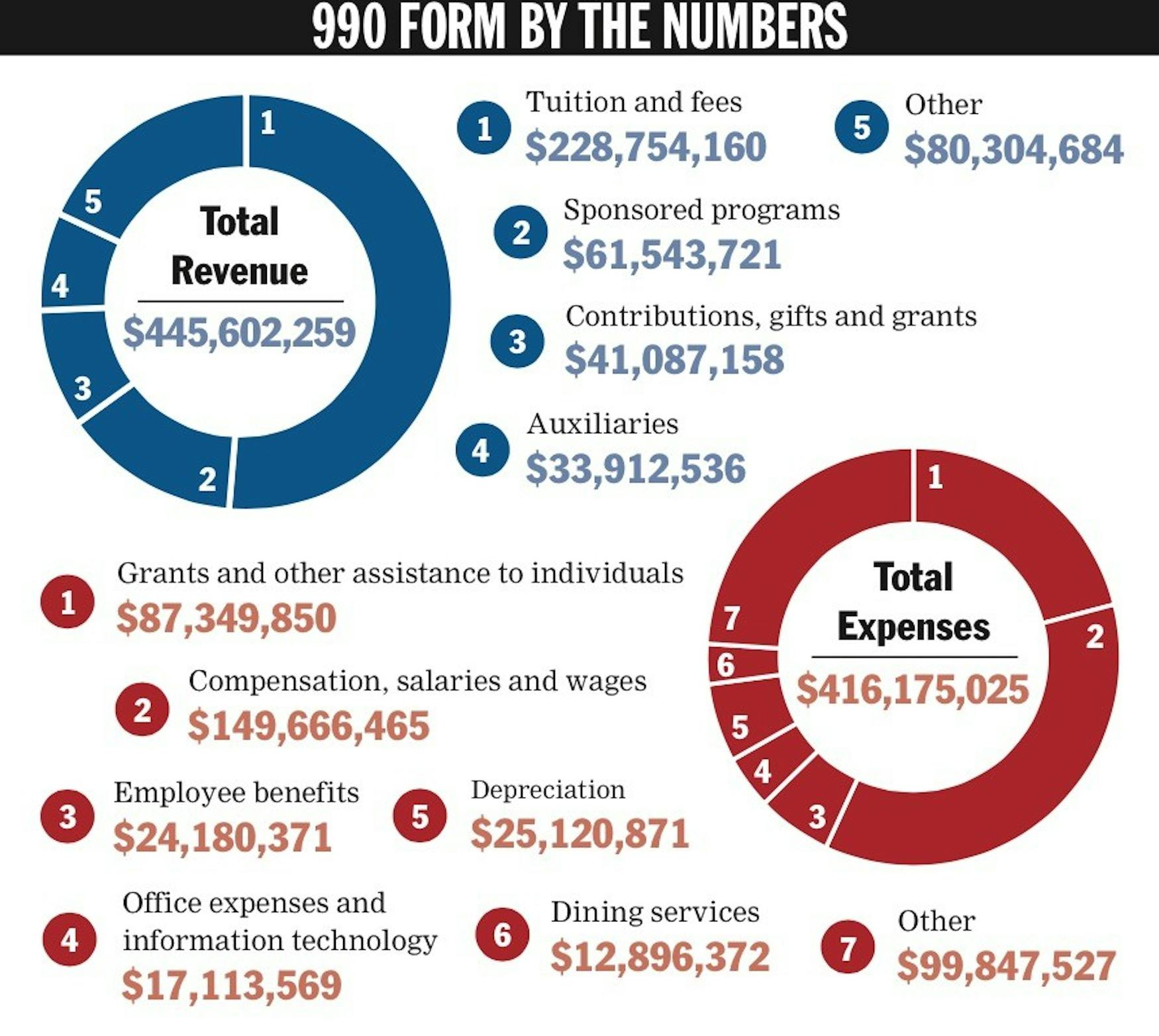2013 990 form reveals growth in endowment
The University’s fiscal year 2013 form 990, a tax form which nonprofit organizations must fill out for the IRS and release to those who request to view it, showed major growth in the University’s income and endowment. The form was released to the Justice by Senior Vice President for Finance and Treasurer Marianne Cwalina.
Fiscal year 2013 ran from July 1, 2013 to June 30, 2014. During this time, the University’s endowment increased by over $90 million, going from $674,521,864 to $766,204,932.
Then-University President Frederick Lawrence, the highest paid administrator in fiscal year 2013, was paid a total of $1,014,259 by the University, earning almost $60,000 more than the previous fiscal year. Senior Vice President for Students and Enrollment Andrew Flagel received $257,813, an increase of $5,616. Lisa Lynch, who during fiscal year 2013 was the Dean of the Heller School and is now the Interim University President, received $323,205.
This year marks the first that President Emeritus Jehuda Reinharz appears on the University’s compensation section for the form 990 solely as a faculty member; he ceased being compensated as a president emeritus in June 2014, according to a November 2013 Justice article. According to the article, Reinharz’s total compensation directly from the University from 2012 through 2014 was approximately $300,000 each year but now will become $180,000 each year as he becomes a half-time professor. A Nov. 18, 2013 Boston Globe article highlighted Reinharz’s salary and caused vocal outcry from students and faculty.
The University listed that it had made significant changes to its governing document since last year’s 990 was filed. This reflected a change in the Board of Trustees’ bylaws, whereby the Personnel, Compensation and Ethics Committee was dissolved and its responsibilities were given to the Executive Committee of the Board of Trustees. The Personnel, Compensation and Ethics Committee determined the compensation of University officers by assessing performance and comparing to peer institutions, with input from independent consultants. It also received and reviewed conflict of interest statements from Trustees, officers and committee members.
In an email to the Justice, Undergraduate Student Representative to the Board of Trustees Grady Ward ’16 wrote that “the PCEC was dissolved because it didn’t make sense to discuss personnel choices (largely the domain of the Executive Board) distinct from their compensation (on the PCEC). For example, in the ongoing presidential search process, it wouldn’t make sense to decide on candidates independently of what we would have to pay them.”
The University earned higher revenues from a variety of sources, including around $7.5 million more in contributions and grants and around $27 million more in investment income. In aggregate, the University earned $1,016,497,392 in net assets, an increase of around $100 million from the start of the year.
The number of undergraduate students receiving financial aid in fiscal year 2013 was 1,964, an increase of 54 from the previous 990 form. In total, the University gave out $57,314,215 in financial aid. The University received $11 million more in tuition revenue, bringing the total to $228,754,160.
Other Brandeis-specific revenue sources included the University’s sponsored programs, the Foster Bio Lab and the Brandeis National Committee, along with fundraising events and grants.



Please note All comments are eligible for publication in The Justice.